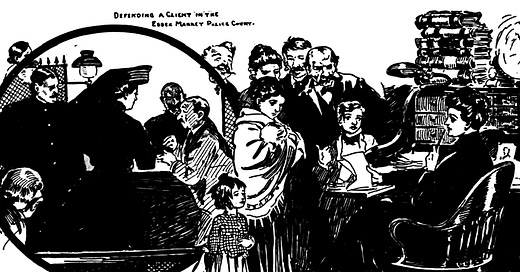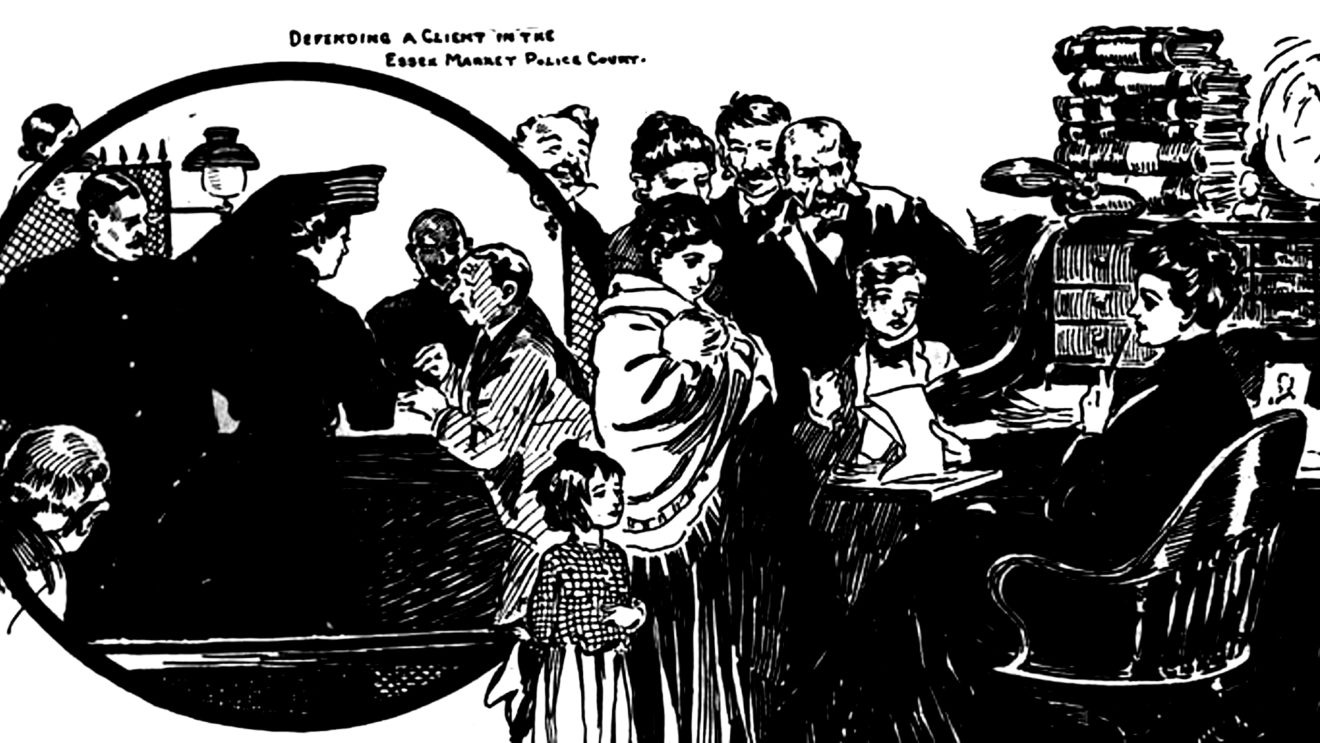They Called Her Mrs. Sherlock Holmes
The mysterious case of the first female U.S. District Attorney, and the morbid murder investigation that put her on the map.
There was important news on the front page that day, but it was the photograph of a girl in a white dress that made people stop and stare. Appearing just below the headline, the young woman was not famous, but she certainly looked familiar. She was seated with her hands at her side, her dark hair pulled up and back, topped off by a great bow. She smiled out past the stories of U-boat attacks and President Woodrow Wilson, her face blurred by grey, halftone dots. Ruth Cruger was eighteen years old when she appeared on the front page of the New York Evening World on the day after Valentine’s Day, 1917. She had been missing for two days.
Ruth had left her family’s apartment on the previous Tuesday to have her ice skates sharpened. When she didn’t come home, the family called the police. Detectives tramped through the snow and rapped on doors. They tracked down rumors of a secret boyfriend and talked to witnesses who said they saw her stagger into a mysterious cab –…
Keep reading with a 7-day free trial
Subscribe to Narratively to keep reading this post and get 7 days of free access to the full post archives.




